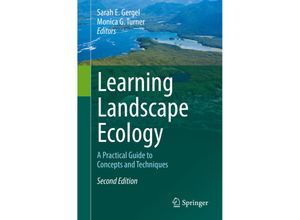This title meets a great demand for training in spatial analysis tools accessible to a wide
audience. Landscape ecology continues to grow as an exciting discipline with much to offer for
solving pressing and emerging problems in environmental science. Much of the strength of
landscape ecology lies in its ability to address challenges over large areas over spatial and
temporal scales at which decision-making often occurs. As the world tackles issues related to
sustainability and global change the need for this broad perspective has only increased.
Furthermore spatial data and spatial analysis (core methods in landscape ecology) are critical
for analyzing land-cover changes world-wide. While spatial dynamics have long been fundamental
to terrestrial conservation strategies land management and reserve design mapping and spatial
themes are increasingly recognized as important for ecosystem management in aquatic coastal
and marine systems. This second edition is purposefully more applied and international in its
examples approaches perspectives and contributors. It includes new advances in quantifying
landscape structure and connectivity (such as graph theory) as well as labs that incorporate
the latest scientific understanding of ecosystem services resilience social-ecological
landscapes and even seascapes. Of course as before the exercises emphasize easy-to-use
widely available software. http: sarahgergel.net lel learning-landscape-ecology

